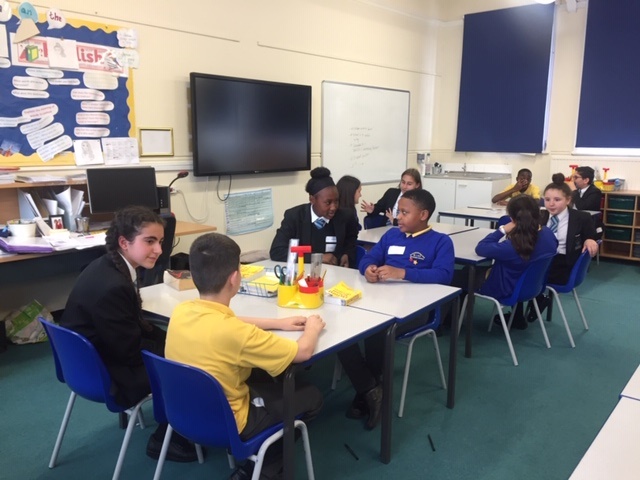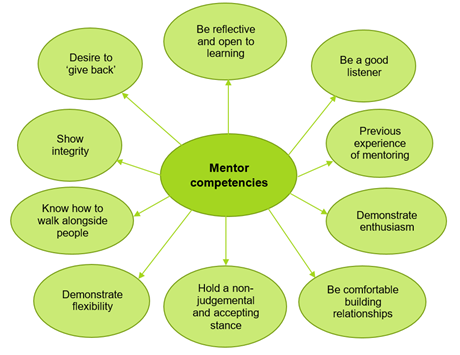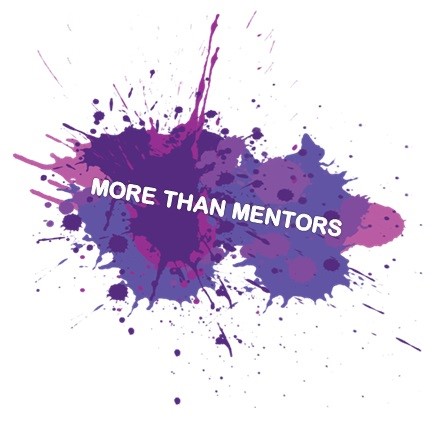The National i-THRIVE Programme team spoke with Nick Barnes, Strategic Lead for More than Mentors about how the programme is aligned with the core principles of the THRIVE Framework for system change (Wolpert et al., 2019).
Download this implementation story.
Background
More than Mentors is an innovative model of psychologically informed, clinically supervised, peer mentoring, which was co-designed and co-delivered as a pilot study in East London in 2015/16. It has since been further co-refined and co-developed, and has been commissioned to reach young people in additional boroughs across London. The programme draws on the best evidence from across the field, exploring Peer Mentoring as a way of preventing significant mental health needs in young people. As of April 2019, More than Mentors have trained over 250 mentors in 3 London boroughs, who have been able to offer peer mentoring to 217 mentees.
The More than Mentors Programme
The programme looks to train young people, aged 12 to 21 years old, in school and community settings, such as Youth Clubs, to become peer mentors through a 2 day/5 session accredited programme of learning. These mentors are then able to offer a 10 week programme of support for mentees, aged 8 to17 years. The programme offers both one-to-one support and group-based, positive activities. The mentors and mentees are supported throughout by experienced youth workers and supervised by a clinical psychologist or mental health specialist, with the mentors receiving on-going supervision, and top-up training, which is embedded into the programme.
Aims, objectives and aspirations of More than Mentors include;
- More than Mentors looks to build the emotional resilience of mentors and mentees
- Improve attainment and attendance within school
- Reduce early signs and symptoms of depression and anxiety
- Demonstrate the benefits of volunteering and contributing to their peers and the wider community.
Figure 1. Young people on the More than Mentors Programme



The More than Mentors core offer:
- For the Mentors: Young people aged 12 to 21 years are offered an accredited (NOCN Level 2) training as a peer mentor, the opportunity to apply their mentoring skills, alongside specialist, clinical supervision throughout the programme and further training and development of leadership skills
- For the Mentees: Children and young people aged 8 to 17 years meet with a mentor in a safe and supportive setting for up to 10 one-to-one sessions to build on their strengths and explore opportunities for change
- For the Schools and Community Groups: As well as supporting young people, the More than Mentors model offers a Train the Trainer programme to ensure that the More than Mentors approach can become a sustainable component of a local offer for building resilience in children and young people.
Figure 2. More than Mentor competencies

Mentor training objectives
Mentor training encompasses several objectives; namely what the role entails e.g. being a ‘professional friend’ not a therapist, teacher or parent, the importance of relationships in the mentoring process, being able to explore opportunities for change, taking notice by understanding and supporting mentees to think about their feelings which is reinforced by understanding the role and the value of journals and reflective practice in the mentoring relationship and process. Finally, keeping safe by recognising when concerns need to be escalated and how to do this, with clear attention to safeguarding and confidentiality throughout.
Mentor supervision and top-up training
Once trained and mentoring, mentors attend fortnightly group supervision that is co-facilitated by a youth practitioner and a mental health specialist. Supervision usually takes place after the mentoring sessions. Group supervision provides an opportunity for:
- Mentors to discuss as a group how the mentoring sessions are going and to obtain validation, ideas, advice and guidance from their supervisors and peers about areas they or their mentees may be finding challenging.
- Mentors to reflect on their role e.g. opportunities and limitations.
- Mentors to consolidate and build upon skills they have learnt during training and to develop additional skills through top-up training modules delivered within the supervision sessions.
- Facilitators to consistently reinforce that any serious issues of concern or risk should be raised immediately with their youth practitioner within the mentoring session and not wait.
- Supervisors to observe and assess how mentors are faring with their mentoring responsibilities, and to provide additional support if indicated.
Evaluation of More than Mentors: emerging findings
The Evidence Based Practice Unit at the Anna Freud National Centre for Children and Families are coordinating an evaluation of More than Mentors.
Findings from the first 2 years of the programme suggest that the young people in the programme, particularly mentees, showed improvement over time in their mental health and perceived stress. In addition, the evaluation found that peer relationships and family connections over time significantly improved.
Feedback from a mentee

How More than Mentors is aligned with the THRIVE Framework
More than Mentors is aligned with a number of the THRIVE Framework needs based groupings:
Thriving
Core to the Thriving needs based grouping is prevention and promotion of emotional health and wellbeing. Through peer mentoring, More than Mentors, builds resilience in children and young people, promoting both the mentor and mentee to have agency over decisions that are made in a setting that enables their needs to be met best. This in turn builds capacity in the universal workforce across the whole system. If any concerns do arise, the mentor will raise the concern with the youth practitioner in supervision or during their 1:1 and the concerns are then discussed with the clinical supervisor for the programme. If necessary, this concern can then be managed through the local safeguarding procedures, or, if appropriate, by referral onto local specialist help or support.
Getting Advice and Signposting
The programme also aligns with the Getting Advice and Signposting needs based grouping through the mechanism of peer-to-peer advice giving with supervision from a mental health specialist. Mentees reported that having someone close to their own age to discuss difficult issues with has been helpful when they have felt they could not discuss them with friends, parents or other adults, including counsellors.

Getting Help/Getting More Help
In addition, the More than Mentors Programme increases access to help and support for children and young people who are not accessing or choosing not to engage with a more specialised offer, and there have not been any increased referrals to specialised child and adolescent mental health services as a result of the programme. Mentors receive robust safeguarding training and supervision which ensures that mentees who may benefit from more specialised support are identified. In addition, mentors follow the safeguarding policy of the setting they are based within.
Next steps
The More than Mentors Programme has a number of exciting future developments:
- Training the Trainers:
- A Training the Trainers programme has been developed that offers schools and community groups the opportunity to co-develop the approach within their own setting, whilst being supported by the More than Mentors delivery sites. This method is now embedded into the curriculum for Education Mental Health Practitioners at both Reading and Exeter Universities.
- Applying peer mentoring to targeted need:
- A Transition Programme is being delivered in two London boroughs to support children who may be vulnerable over the period of transition from primary to secondary school.
- The programme is continuing to develop and build the evidence base for peer mentoring as an early action and preventative approach for addressing children and young people’s emotional health and wellbeing.

For further information about More than Mentors please contact Nick Barnes, Strategic Lead, at nick.barnes4@nhs.net.
Edited by the National i-THRIVE Programme Team.
Written October 2019.